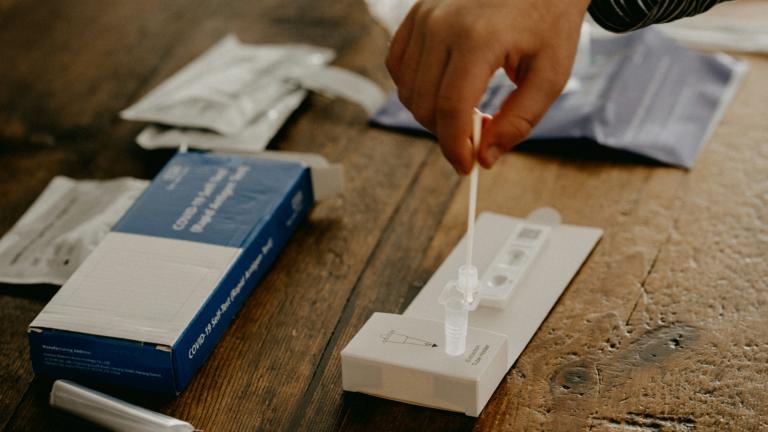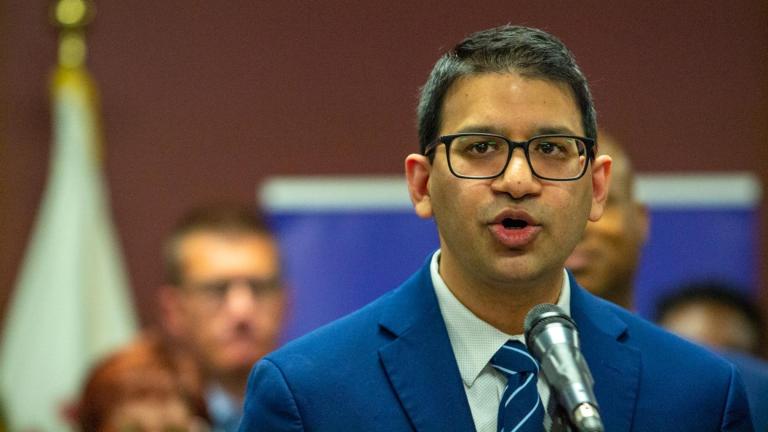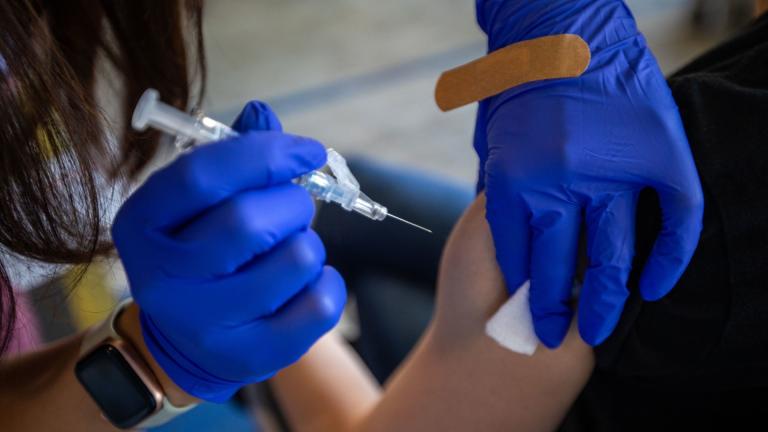The United Kingdom began distributing Pfizer's coronavirus vaccine to citizens Tuesday, and the United States could soon follow.
The Food and Drug Administration released documents Tuesday confirming the safety and efficacy of Pfizer’s vaccine, finding it meets the agency’s standards for emergency use authorization.
The FDA’s Vaccines and Related Biological Products Advisory Committee will hold a full-day public meeting Thursday to discuss the data and make recommendations. The FDA’s decision on whether to grant authorization of Pfizer’s vaccine is expected within days of that meeting.
The meeting is standard procedure, said Dr. Archana Chatterjee, dean of the Chicago Medical School and vice president for medical affairs at Rosalind Franklin University of Medicine and Science in North Chicago. She serves on the FDA’s vaccine advisory committee known as VRBPAC.
“We review data submitted by the sponsors, which is the vaccine manufacturers, and evaluate the efficacy and safety of the trial data, that the trial data show, and then … after discussion and voting, make recommendations to the FDA on whether to approve or not approve the vaccine licensure, or approval in this case, and also whether there are additional studies needed,” said Chatterjee, who has a background in infectious diseases.
After presentations on Thursday, committee members will ask questions and there is time for public comment. Then the committee will make its recommendations.
“We recommend approval to the FDA. The FDA has publicly stated that they will accept our recommendations. We will also perhaps make recommendations for additional studies that may be needed, or additional data that may be needed,” Chatterjee said.
The FDA then takes that information and makes a decision based on the committee’s recommendation.
The committee includes experts in the field of vaccinology, ethics and immunology, Chatterjee said. Before each meeting, members must fill out a conflict-of-interest form.
“The purpose of the committee is to be not only independent of the manufacturers, but also of the government,” Chatterjee said. “Particularly this year and with the COVID vaccines, and all of the concerns that have been raised around influence form the government in trying to move these vaccines along in their development. I think it’s particularly important that our committee is seen as the independent group that it is.”
The committee has existed for many decades — long before COVID-19, Chatterjee said.
Meanwhile, Americans appear hesitant to get a potential coronavirus vaccine. Sixty-three percent of U.S. adults say they would get the vaccine within a year of it becoming available, according to an October Ipsos survey for the World Economic Forum. Some people are skeptical because the process has been accelerated.
“It is true that the development effort has moved forward at a very rapid pace, as has the approval mechanism, however it’s important to note that the steps in the process have for the most part been followed,” Chatterjee said. “There are some steps that are different with this emergency use authorization as opposed to a biologic license application, which is the usual way that vaccines are licensed, but that’s really the primary difference in terms of the process.”
The committee will meet again on Thursday, Dec. 17 to discuss Moderna’s coronavirus vaccine.








